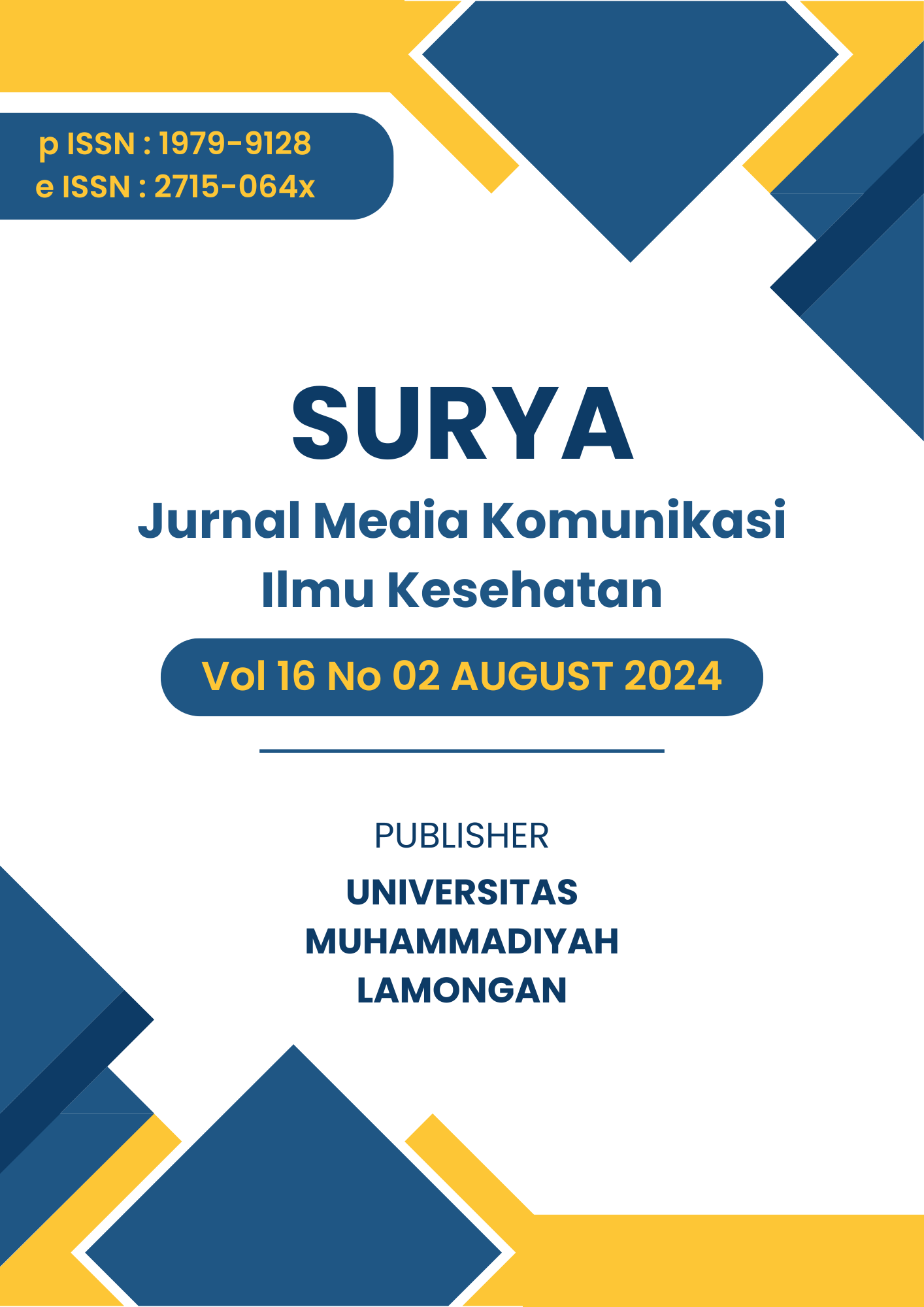Nursing Care in Mild Brain Injury Patients on Intracranial Adaptive Capacity Reduction Diagnosis
DOI:
https://doi.org/10.38040/js.v16i2.903Abstract
Introduction: Head injury or Traumatic Brain Injury (TBI) is defined as a disturbance in the normal functioning of the brain that can be caused by a collision, blow, or jolt to the head or a penetrating head injury. Decreased intracranial adaptive capacity is a disturbance of the intracranial dynamics mechanism in compensating for stimuli that can reduce intracranial capacity. This study aims to explore nursing problems in clients with mild brain injury.
Methods: This study uses a case report research design. The population in this study were patients admitted to the roudloh room with mild brain injury as many as 4 people. The sample was selected using purposive sampling technique and obtained a sample of 2 patients with a nursing problem of decreased intracranial adaptive capacity. Data collection using surgical medical nursing assessment format. Data was analyzed with descriptive analitic.
Results: The assessment results found that both patients experienced headaches, vertigo, nausea and vomiting and blurred vision. The nursing problem raised is a decrease in intracranial adaptive capacity. The intervention given is to provide a 30⁰ head elevation. From the results of the intervention, it was found that the intervention had been resolved.
Conclusion: Giving semi fowler position with head elevation 30 ° in patients with nursing problems decreased intracranial adaptive capacity is very effective. The provision of interventions provided for 3 days with a 30 ° head elevation showed that both patients achieved outcome.
Keywords: Mild Head Injury, Head Elevation 30⁰, Head Injury
References
Abdullah, M. R., Luneto, S. I., & Sarwan. (2022). Pengaruh Elevasi Kepala 30° Terhadap Kesadaran Pada Pasien Cedera Kepala. Jurnal Kesehatan.
Golden N, Mardhika PE, Niryana W, Sukarya IM, Prabawa IPY. Risk factors and novel prognostic score for predicting the 14-day mortality of severe traumatic brain injury patients. Intisari Sains Medis. 2020;11(3):699- 705.
Imtihanah, A. (2017). Pengelolaan Peningkatan Tekanan Intrakranial. Jurnal Ilmiah Kedokteran.
Nugroho. P. Handono, (2019). efektivitas manajemen nyeri dengan guided imagery relaxation pada pasien cedera kepala di rsud dr. soediran mangun sumarso wonogiri. Jurnal keperawatan gsh, 7(1), 5-9.
Pertami, S. B., Sulastyawati, & Anami, P. (2017). Effect Of 30° Head-Up Position On Intracranial Pressure Change In Patients With Head Injury In Surgical Ward Of General Hospital Of Dr. R. Soedarsono Pasuruan. Public Health of Indonesia, 3(3), 89–95. https://doi.org/ISSN: 2477-1570.
Ponsford J. Factors contributing to outcome following traumatic brain injury. NeuroRehabilitation. 2018;32(4):803- 815.
Suyasa IK, Lestari AAW, Prabawa IPY, Marta KKA. Water sport-related spine injury in Bali: a review and preliminary study. Indonesia Journal of Biomedical Science. 2019;13(2):72- 76.
Tjahjadi M, Arifin MZ, Gill AS, Faried A. Early Mortality Predictor of Severe Traumatic Brain Injury: A Single Center Study of Prognostic Variables Based on Admission Characteristics. Indian J Neurotrauma. 2018;10(1):3–8.
Wahidin, N. S. (2020). Penerapan teknik head up 30° terhadap peningkatan perfusi jaringan otak pada pasien yang mengalami cedera kepala sedang. Nursing Science Journal (NSJ), 1(1), 7-13

Downloads
Published
Versions
- 2024-08-26 (3)
- 2024-08-26 (2)
- 2024-08-14 (1)
How to Cite
Issue
Section
Citation Check
License
Copyright (c) 2024 Surya

This work is licensed under a Creative Commons Attribution 4.0 International License.
- The journal allows the author to hold the copyright of the article without restrictions.
- The journal allows the author(s) to retain publishing rights without restrictions.
- The legal formal aspect of journal publication accessibility refers to Creative Commons Attribution (CC BY).










